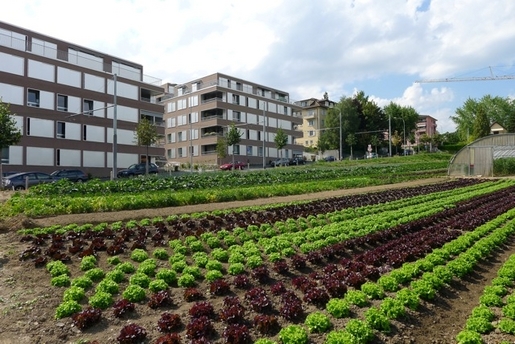Thursday, 05/03/2026 | 17:12 GMT+7
Missouri farmers could become more energy efficient in the future, after a USDA grant was given to the University of Missouri Wednesday.
The grant aims to help local area farmers think about how they use energy and help them become more environmentally friendly as well as lower energy costs on their farms.
USDA Business Program Director Matt Moore said the lower costs of production could trickle down to market prices and make farms more economically viable.
"In agriculture and food production in general, it's a very thin margin business, meaning that producers and those involved in the industry have to work very hard for every penny of profit that they make," Moore said. "Even seemingly small savings in terms of energy consumption and cost can have a big impact on the viability of that farm or business and it's just another way that AG producers and businesses can stay strong members in rural communities and provide markets for their products and provide healthy food for people to eat."

The grant specifically will go toward the University of Missouri to provide for energy audits for local farmers.
"What an energy audit does is find all the ways they can offset their energy costs, reduce consumption and therefore save money," Moore said. "It may be things that are not especially obvious at first. It could be simple things like windows, lighting, insulation, and new heating systems. It could even be the implementation of renewable technology such as solar, wind or biomass or geothermal power."
While the grant aims to help farms become more energy friendly, some local farms have already taken energy saving measures.
The Columbia Center for Urban Agriculture's Urban Farm operates at a low energy cost and saves money by practicing more green techniques.
"Our green house is hooked up to electricity, but it's mostly heated through passive solar techniques, which is the sun heating the water and then the water at night releasing heat," Columbia Center for Urban Agriculture farm manager Carrie Hargrove said. "So there are building methods as far as vegetable producers go that can help you save costs on electricity or heating or cooling as it may be. One of our buildings doesn't cost us any money and greenhouses are, as far as vegetable growers go, one of the most intensive uses of energy."
Hargrove said the USDA and other organizations have gotten better about more clean energy farming products.
"It seems like there are a lot of opportunities for grants out there right now to convert existing machinery to run on solar power and also to hook up a well pump to run on solar power," said. "It seems as though those grants are becoming fairly common."
Outside of the grant, the USDA offers around $2 million in financial support for renewable energy products.
Truong Duy







